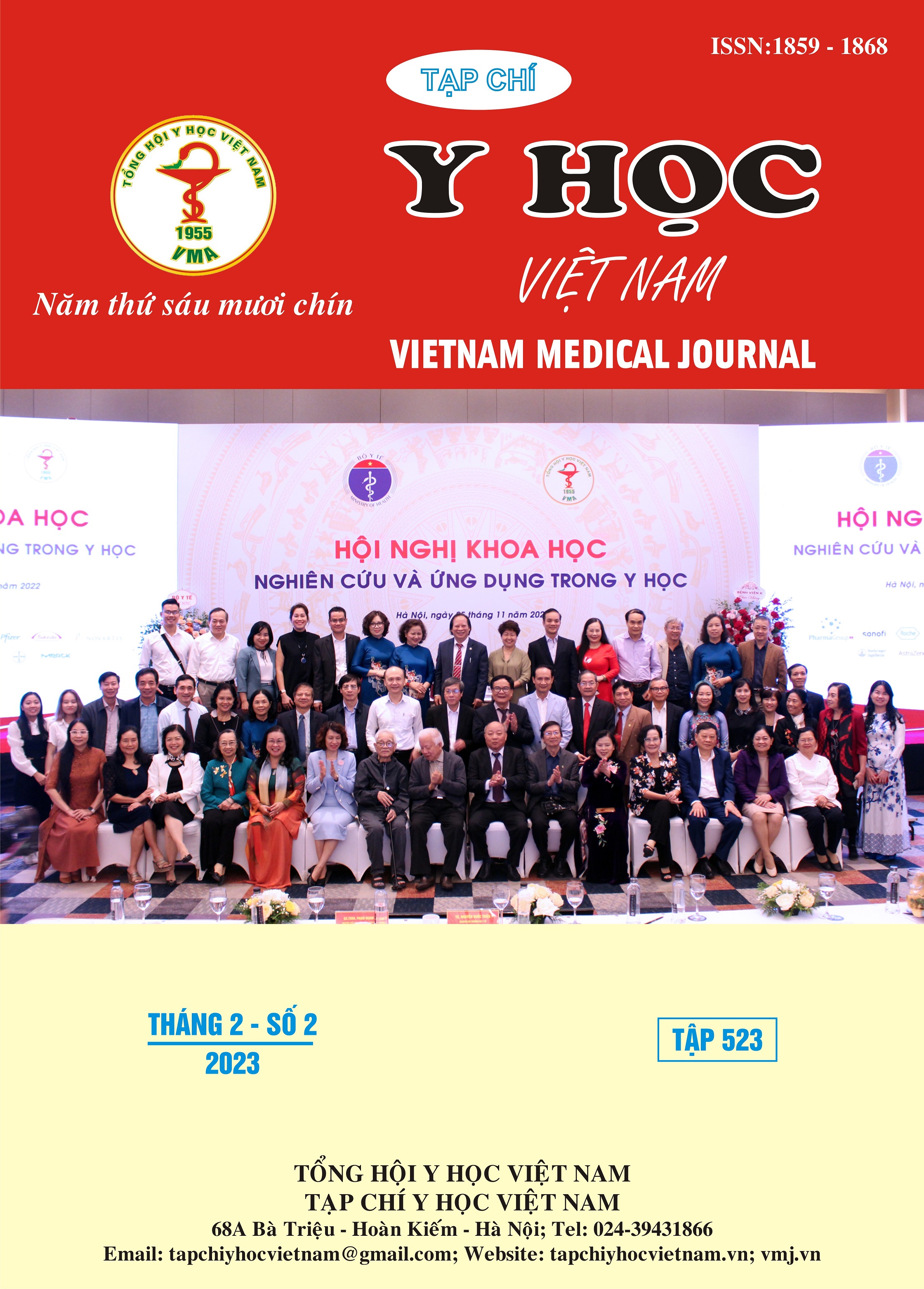KNOWLEDGE, ATTITUDE AND PRACTICE OF MOTHERS ABOUT ASTHMA IN CHILDREN AT VINH CITY GENERAL HOSPITAL
Main Article Content
Abstract
Objectives: Describe the current status of knowledge, attitudes, practices, care management and prevention of mothers about bronchial asthma in children at the Pediatrics Department of Vinh City General Hospital in 2022. Methods: A cross-sectional descriptive study with analysis. Result: A study of 95 mothers at the Pediatrics Department of Vinh City General Hospital on the status of knowledge, attitude, practice, care, and prevention of mothers about asthma in children. Results: The rate of children with asthma in the family with someone with asthma was 73.7%, of which the number of children diagnosed and treated for >1 year was 62.1%. In which, 42.1% of children are taking anti-seizure medication, 26.3% are using reliever medication, 31.6% are using a combination of anti-seizure medication; Knowledge of mothers about risk factors for the onset of HPQ due to diet is 70.5%, environmental factors, smoke and dust have 54.7%, weather 75.3%. The percentage of mothers who knew about severe signs of the disease such as wheezing, stridor, chest indrawing and dyspnea was still low (55.8; 26.3; 43.2; 36.8%); 73.6% of mothers have the right attitude to use asthma medications adequately and correctly, 26.4% have the wrong attitude while the percentage of mothers with the right attitude to use asthma relievers is 93.7%. The mother can distinguish between reliever and preventer is 75.8%, recognize the amount of medicine left in the bottle of MDI is 63.2%; 89.4% of mothers practiced proper inhalation hygiene; 87.4% of mothers practice rinsing their children's mouth after spraying; The percentage of mothers practicing dose reduction, stopping anti-epileptic drugs for children with COPD accounted for 77.9%, the remaining 21.1% did not know; 87.4% of mothers practiced the correct use of reliever medication. Conclusion: Asthma is a common respiratory disease in children. Some deaths were caused by the mothers' lack of knowledge and practice in prevention as well as management attitudes. Health education on follow-up care for children with bronchial asthma is very necessary, bringing efficiency to the treatment process, helping mothers to take better care of their children at home. Therefore, it is necessary to improve the knowledge, attitudes and practices of mothers in handling care and prevention during the illness of their children.
Article Details
Keywords
Asthma in children; Knowledge and practice of mothers
References
2. Nguyễn Thị Rảnh (2017), “Đánh giá kiến thức về quản lý Hen phế quản của bà mẹ có con bị hen ở khoa hô hấp Bệnh viện Nhi Đồng I năm 2017”, Bệnh viện Nhi Đồng I.
3. GINA (2017), “Phác đồ điều trị hen phế quản”.
4. Nguyễn Thị Diệu Thúy (2010), Đánh giá kiến thức, thực hành của bố, mẹ bệnh nhi trong điều trị dự phòng Hen phế quản ở trẻ em, Đại học Y Hà Nội.
5. Bùi Kim Thuận (2018), “Đặc điểm lâm sàng, cận lâm sàng và hiệu quả điều trị kiểm soát hen ở trẻ ≤ 5 tuổi theo các dạng phenotype tại bệnh viện Sản Nhi Nghệ An 2018”.
6. Akinbami L. J. &Schoendorf K. C. (2002), "Trends in childhood asthma: prevalence, health care utilization, and mortality", Pediatrics, 110 (2 Pt 1), pp. 315-22.


